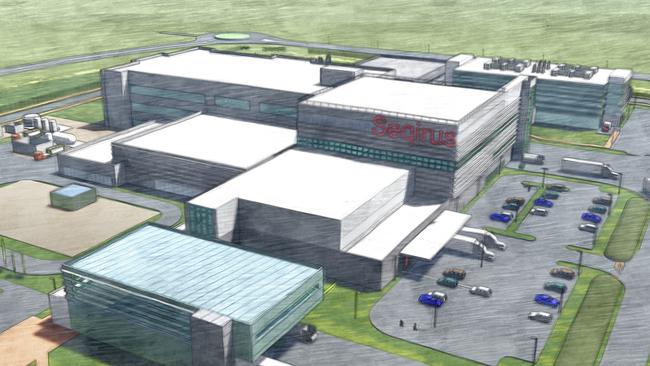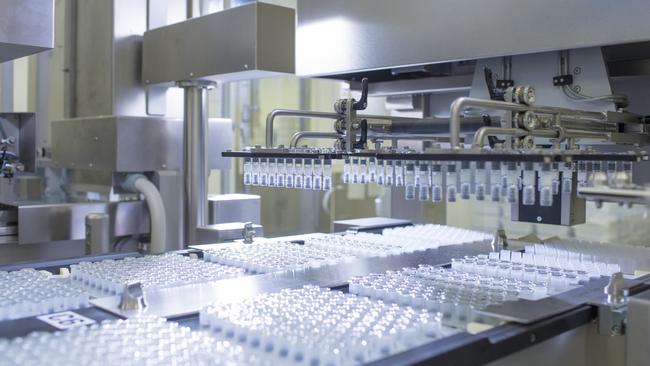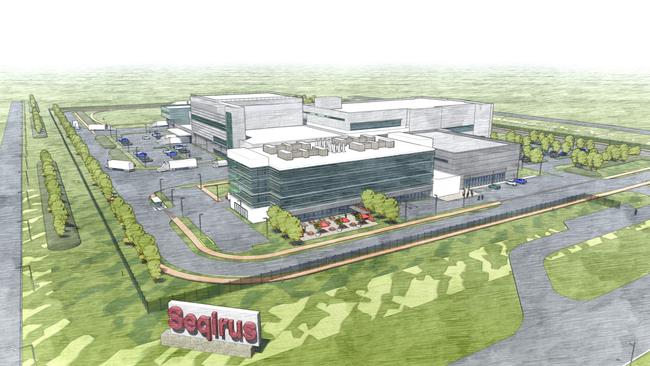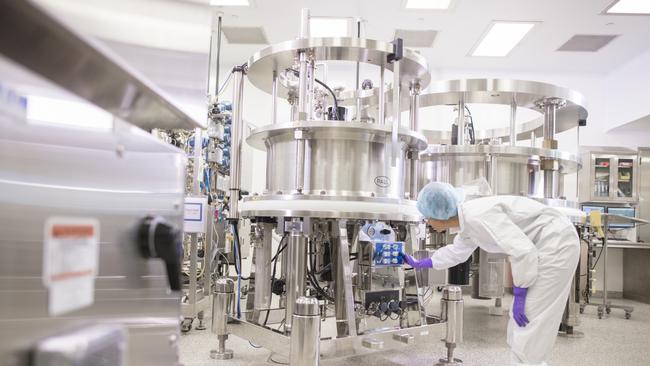Coronavirus Australia: NSW will not shut border to SA
New South Wales will keep its borders open despite QLD, WA, Tasmania and the NT closing state lines to South Australia over a new COVID outbreak.
NSW
Don't miss out on the headlines from NSW. Followed categories will be added to My News.
The NSW border to South Australia will not be closed despite a new COVID outbreak in that state.
Queensland, Tasmania, the Northern Territory and Western Australia all moved to close their borders or impose restrictions on SA on Monday.
But Premier Gladys Berejiklian said her government would not follow, saying she was confident in SA’s ability to manage the outbreak.
Ms Berejiklian said NSW “has no intention” of changing border arrangements “at this stage”.
However passengers who have entered NSW from South Australia are urgently being contacted by authorities in the wake of Adelaide’s new COVID outbreak.
NSW Health is contacting people who flew into Sydney and Broken Hill from SA, asking if they have visited any venues linked with a coronavirus case.
“Anyone who is travelling to NSW from South Australia, or has recently done so, regardless of their mode of transport, is asked to check if they have attended any of the venues of concern,” a NSW Health statement said.
It comes as NSW recorded no new locally acquired cases of COVID-19 for the ninth day in a row.
One historical case – believed to be from last month – was detected along with two new cases in hotel quarantine. The cases were detected in 7,034 tests.
An existing cluster in Adelaide has jumped from three to 17 cases overnight. A Hungry Jacks worker and an aged care worker are among the new cases.
WA Premier Mark McGowan was the first to pull the trigger on Sunday night, announcing those who entered from SA will be required to quarantine for 14 days, leaving travellers stranded at the airport.
On Monday morning, NT Chief Minister Michael Gunner shut the borders “effective immediately”, as did Tasmania Premier Peter Gutwein.
By midday on Monday, Queensland declared Adelaide a hotspot and imposing travel restrictions on the city.
Those entering the sunshine state from midnight on Monday will be required to enter quarantine and those who have already arrived will need to self-isolate while they await a test result.
Queensland remains closed to greater Sydney residents and Victoria but this was expected to be eased ahead of Christmas following a commitment from state leaders at Friday’s National Cabinet meeting.
AUSTRALIA TO PRODUCE VACCINES FROM $1B FACILITY
Vaccines for the flu, future pandemics and anti-venom for deadly snake and spider bites will be mass produced on Australian shores in a new $1 billion state-of-the-art facility.
The hi-tech vaccine plant will begin construction in Melbourne from next year, guaranteeing Australia will be able to locally produce lifesaving drugs until at least 2036.
Under the agreement between the federal government and pharmaceutical company Seqirus revealed on Monday, Australia would have the largest influenza vaccine facility in the Southern Hemisphere.
Seqirus, which is parent company to CSL Ltd, would invest $800m in the development of the project, creating 520 construction jobs from 2021.

CSL is currently contracted produce both the Oxford University and University of Queensland COVID-19 vaccine candidates in Australia.
An ongoing deal with the federal government was already due to expire in 2024, but rather than renew an agreement using CSL’s ageing infrastructure, a deal for a new plant has been struck.
In the event of a future flu pandemic, the new facility would be able to produce enough emergency vaccine for every Australian in just six weeks.

Seqirus is also the only company in the world that makes lifesaving antivenene products against 11 poisonous Australian creatures including tiger, black and brown snakes, red back and funnel-web spiders, stone fish, box jellyfish, taipans and death adders.
Prime Minister Scott Morrison said the agreement gave Australia “long term sovereign medical capabilities” so the nation could produce a vaccine as needed.

“Keeping Australians safe is my number one priority and while we are rightly focused on both the health and economic challenges of COVID-19, we must also guard against future threats,” he said.
“Just as major defence equipment must be ordered well in advance, this is an investment in our national health security against future pandemics.”
Health Minister Greg Hunt said the new facility would guarantee Australian health security against pandemic influenza for the next two decades.
“Our government’s strategy to protect the health and wellbeing of Australians and the Australian economy, as well as having access to a world class health system,” he said.
“This is a major milestone, ensuring that Australia can mass produce vaccines against future flu pandemics, as well as continuing onshore production of seasonal flu vaccines, Q fever vaccines and anti-venoms.”

Without the agreement, Australia would need to secure critical medical products from overseas.
The current manufacturing plant used by CSL was built more than 60 years ago and could not be modified or expanded to accommodate new technologies and production requirements.
The new facility would be equipped to produce cell-based vaccines, a significantly faster alternative to the traditional method using chickens.
Currently influenza and other vaccines are manufactured by inoculating specially bred chickens and harvesting the virus from eggs to turn it into a vaccine.
Originally published as Coronavirus Australia: NSW will not shut border to SA




